I try to make a kind of learning tool using learnr package. We have one question and for answers where one is the correct one:
Instead of putting in eachtime a wrong answer by hand I would like to take the WRONG answers randomly from the dataframe:
df1 <- tibble(letters = LETTERS, Number = 1:26)
How can I make to take randomly cell values from column Number for answer 1, 2, and 4. The correct answer is answer Nr.3.
In the first step I have tried to use deparse(substitute(df1[1,2])) instead of 1, but failed.
---
title: "Tutorial"
output: learnr::tutorial
runtime: shiny_prerendered
---
```{r setup, include=FALSE}
library(learnr)
library(tidyverse)
knitr::opts_chunk$set(echo = FALSE)
df1 <- tibble(letters = LETTERS, Number = 1:26)
```
Question 1:
```{r quiz}
# This works not
quiz(
question("Which number has E?",
answer(deparse(substitute(df1[1,2]))),
answer(deparse(substitute(df1[4,2]))),
answer(deparse(substitute(df1[5,2])), correct = TRUE),
answer(deparse(substitute(df1[8,2])))
),
# This one works
question("Which number has E?",
answer("1"),
answer("4"),
answer("5", correct = TRUE),
answer("8")
)
)
```

